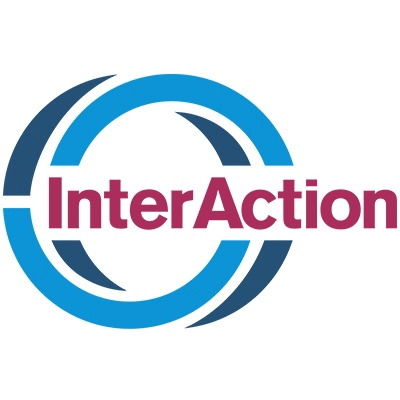Social Cohesion
“Promoting social cohesion, so that diversity is seen as a benefit rather than a threat, is investing in sustaining peace. As societies become more multi-cultural, multi-ethnic and multi-religious, people must feel that their identities are valued, even as they feel a sense of belonging to the larger community.”
– UN Secretary-General Antonio Guterres
Every day, we partner around the world to end their own hunger and poverty through sustainable and women-centered strategies that work from the bottom up. Promoting and ensuring social cohesion across communities is a key element of our strategy. Our programs build social cohesion by building local capacity to prevent and mitigate violence through peaceful means that emphasize good governance and human rights.
Worldwide, conflict has become a major cause of hunger. Therefore, the achievement of our mission rests on our ability to promote cohesive communities where peace can be sustained in the long run, and where all members feel empowered in their quest toward peaceful, healthier, more sustainable and self-reliant lives.
We have learned that when communities work together to achieve development goals, politically motivated and other forms of violence are significantly reduced. And, cohesive communities with high levels of trust tend to make better financial decisions that improve people’s lives in the long run.
In September 2015, UN member states adopted the historic 2030 Agenda on Sustainable Development. It recognizes that key to achieving all other goals is Goal 16, which is dedicated to the promotion of peaceful and inclusive societies for sustainable development, the provision of access to justice for all, and building effective, accountable institutions at all levels.
This is especially important for ending hunger and malnutrition around the world. A holistic development approach, one that includes peacebuilding, social harmony, human rights and good governance, is essential to ensure millions of people can lift themselves out of poverty and hunger by 2030. In this, women and youth play a central role as they support their communities in their quest for a peaceful, healthier and sustainable future.
With the 2030 Agenda, the world has reaffirmed the mutually reinforcing relationship between peace and sustainable development, noting that the best means of prevention and of sustaining peace is inclusive and sustainable development; and, that sustainable development cannot be achieved in the absence of the conditions for sustainable peace, such as social harmony and cohesion.
What We Do
- In Mexico, we work with communities and local government to promote social harmony and cohesion. Because local municipios hold elections every two years, the high turnaround at the local government level can translate to unkept promises. We bring together communities and government representatives to develop a common vision for the peaceful management of life in the community – regardless of what party holds the municipio.
- In Bangladesh, we work on the prevention of electoral violence – an entrenched practice, which is exacerbated by an extreme “winner-take-all” approach frequently used within Bangladeshi political parties. Our People Against Violence in Elections (PAVE) program seeks to increase the number of peacebuilding events across the country in order to ultimately decrease Bangladesh’s tolerance of violence. Activities include: conducting PAVE training; building a network of Ambassadors for Peace; and engaging in and monitoring peace-building initiatives. Our Social Harmony Workshops empower individuals to collectively advocate for preventing and mitigating political violence through peaceful means.
In India, we support women elected leaders as they create federations at the local and state levels to voice their concerns as a collective unit. In the states of Madhya Pradesh, Karnataka, Odisha, Bihar and Rajasthan, the federations offer a platform for sharing experiences and common issues, jointly lobbying against adverse policies, fighting social injustices, advocating for women’s political rights, collaborating on projects and taking initiatives that will help their communities.
Related News
Make change happen. Invest in people.
Mailing address
The Hunger Project
110 West 30th Street, 6th Floor
New York, NY 10001
Get connected
Join the conversation on social, and stay connected with the latest from our partners around the world.
Stay informed
Subscribe to our newsletter to receive updates of latest news and events.
© The Hunger Project | Website by The Good Alliance






